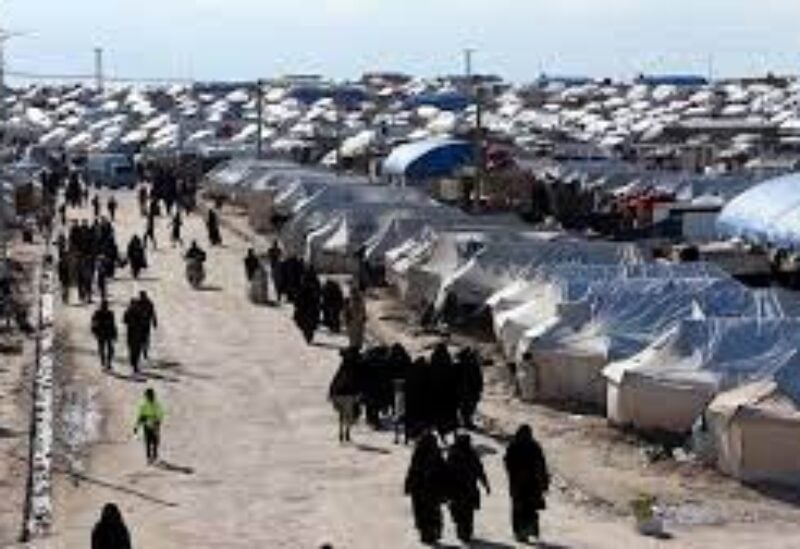
AL-Hol camp
The return of dozens of Iraqi families suspected of having links with ISIS from the Al-Hol camp in Syria to Mosul raises fears among the residents of the region, as the memory of the atrocities of this extremist organization is still fresh in minds.
Under cover of darkness and amid tight security, about a hundred Iraqi families crossed Tuesday night from Al-Hol camp in Syria to Iraq to settle in Al-Jada camp, south of Mosul.
It is the first time that displaced Iraqis have been returned from Al-Hol, which houses more than 60,000 people, including relatives of ISIS fighters. An official in the Kurdish Local Administration in northeastern Syria said that the operation was organized according to an agreement between Baghdad and the international coalition to combat ISIS led by Washington, and it constitutes a “first wave” to be followed by other batches.
The operation brought back to the minds of many residents of Mosul the memory of the atrocities of ISIS, which controlled the area for more than 3 years.
Omar, 28, who lost his father at the hands of the extremist organization, confirms to Agence France-Presse in front of a cemetery that houses the victims of the organization, “the categorical refusal by the people of Qayyarah to return these people, as their ideas are militant and supportive of the organization.”
“We cannot coexist with them,” he added, while the fate of about 200 people from the region is still unknown, after ISIS arrested them. Qayyarah was one of the first areas in the Mosul region to be liberated from the clutches of jihadists.
The director of Qayyarah district, Saleh Hasan al-Jubouri asserts, “There is a great popular rejection of their return, especially since they were residents of Al-Hol camp,” which includes tens of thousands of displaced Syrians and Iraqis, including family members of ISIS fighters.
But he insists, despite the residents ’fear of that step, to” exclude these families from having a security effect on the area. ”
According to al-Jubouri, 90 families arrived at al-Jada, most of them were women and children, and their number is estimated at 300, while the camp includes 7,500 displaced persons, including jihadists.
Time bomb
The main concern is the absence of the issue of transferring these families “of any transparency,” as Ali Al-Bayati, a member of the High Commission for Human Rights, explained to AFP.
Al-Bayati says that the main fear in his opinion is the lack of clarity “whether these families were subjected to security checks or accountability, especially since most of the families that were in Al-Hol camp belonged to ISIS and had many security notes.”
Al-Bayati believes that “it was necessary to ensure that there was no charge against them and that they did not commit any crime against civilians in the war or their participation in it before returning them,” while the director of Qayyarah sub-district asserts that most of them are women and children and therefore do not pose a threat.
On the other hand, the Iraqi authorities confirm, according to the Minister of Immigration, Evan Faeq, that “the security services have resumed security checks” of these returnees. AFP